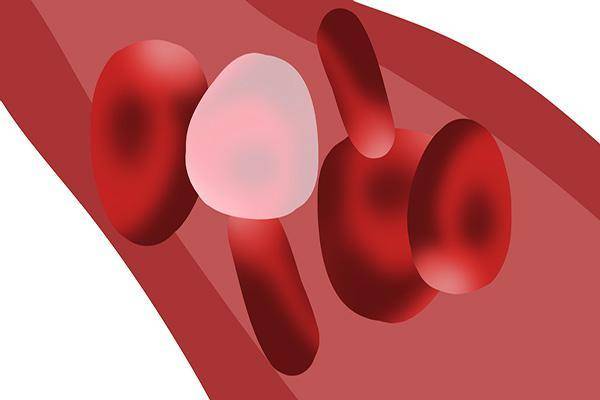Nowadays, the number of people suffering from high blood fat is increasing, especially those over 40 years old. When blood fat levels rise, the damage to the body is substantial. It can increase the burden on blood vessels, thicken blood viscosity, leading to the onset of heart attacks, strokes, and increasing the occurrence of accidents. Therefore, it is important to take preventive measures. Elevated blood fat levels will manifest clearly in the body. Pay attention to timely adjustments to lower blood fat levels.
What are the symptoms of elevated blood fat?
Increased blood fat levels in the body mean that blood circulation may slow down. The feet will be the first to react, especially since the feet are considered the body’s “second heart,” being farther away from the heart. When blood becomes viscous and circulation is impaired, insufficient blood supply to the feet may cause cramps and pain. Do not simply attribute this to a calcium deficiency, which is common in children. For individuals in their thirties and beyond experiencing leg cramps and pain, it is often due to high blood fat levels.
After blood fat levels rise, blood supply issues may arise, resulting in overall bodily weakness. Memory issues or cognitive decline may occur, which is easily overlooked as fatigue. If you wake up feeling weak and with a heavy head, pay attention to your blood fat levels as this is a critical period that could damage the brain. Therefore, prioritize body maintenance to reduce harm.
Reducing blood fat requires attention to the “two avoidances and two inclusions.”
As the saying goes, illnesses start from the mouth, and high blood fat levels are closely related to diet. Avoid greasy foods, especially roadside fried snacks, roasted duck, grilled chicken, braised pig’s feet, and other high-fat and calorie-rich foods. While these foods may taste good, overconsumption can burden the blood, raise cholesterol levels, and increase blood viscosity. Therefore, these foods should be avoided.
Avoid all kinds of beverages, such as cola, Sprite, and various flavored drinks, as they are popular among many people, particularly men who prefer beverages over water. These drinks are high in sugar and calories, increasing the burden on blood vessels and causing elevated blood fat and blood sugar levels, leading to health damage.
It is recommended to include coarse grains in your diet, such as oats, sweet potatoes, pumpkins, corn, and others. Coarse grains are rich in fiber and various vitamins, aiding in promoting intestinal motility, timely waste elimination from the body, reducing body burdens, lowering blood viscosity, and improving blood vessel circulation.
For individuals with high blood fat levels, consuming deep-sea fish is beneficial. Deep-sea fish is a low-fat, high-protein food containing a certain amount of unsaturated fatty acids, which can reduce blood vessel burden, lower cholesterol levels, regulate blood pressure, and serve as a good blood vessel-cleansing food.
After blood fat levels rise, blood circulation issues may affect various body parts with certain damages. Severe cases may lead to heart damage, increased blood vessel burden, and potential accidents. Therefore, it is crucial to maintain good health. In addition to dietary changes, increasing daily water intake can help dilute the blood, improve circulation, gradually lower blood fat levels, and enhance overall body functionality.


